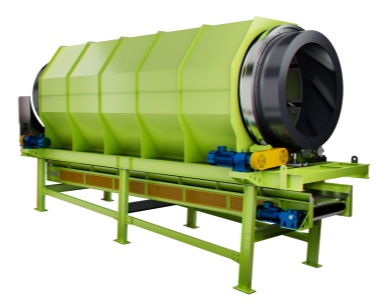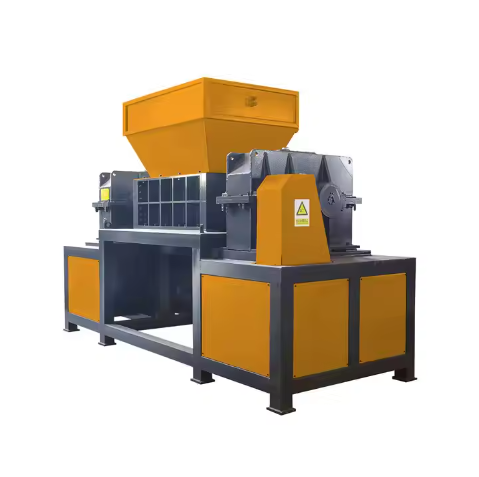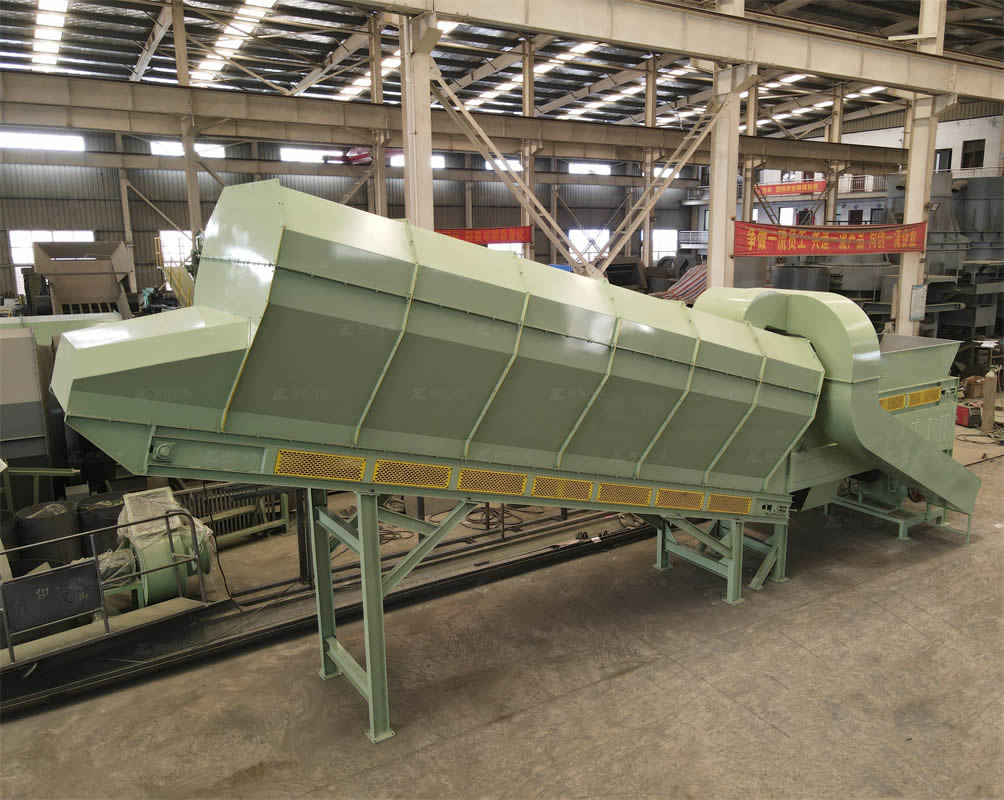The Environmental Benefits of Trommel Screen
Trommel screens have become a key component in the waste management and recycling industry due to their significant environmental benefits. As the world becomes more focused on sustainability and reducing waste, the use of trommel screens in material separation is helping to pave the way for more efficient recycling processes and waste reduction efforts. These machines offer several advantages, particularly in terms of sorting recyclable materials and organic waste, which not only aids in reducing the amount of waste that ends up in landfills but also helps in resource conservation and promoting sustainable practices.
![]WZ6N7S`M59}O@Y`P(MN}S4.png](/uploads/allimg/20240906/1-240Z6101J0R2.png)
Enhanced Material Separation
One of the most important advantages of trommel screens is their ability to provide high-precision separation of materials. Trommel screens are designed to sort various materials based on size and weight, allowing for an efficient separation of valuable recyclables such as metals, plastics, and glass. This precise separation is essential for recycling operations, as it ensures that these valuable materials are recovered and not sent to landfills, where they would otherwise contribute to environmental pollution.
Trommel screens excel in managing municipal solid waste (MSW), construction and demolition (C&D) waste, and landfill waste. They are capable of handling large volumes of mixed waste streams, effectively separating valuable materials from non-recyclable debris. This efficiency is especially critical in urban environments, where increasing waste generation requires robust solutions for effective recycling. By integrating trommel screens into waste sorting systems, recyclables are sorted, processed, and directed to the appropriate recycling facilities, ultimately contributing to the conservation of natural resources such as metals and plastics, which can be reused in manufacturing.
Supporting Sustainable Recycling Efforts
In addition to facilitating the recovery of valuable materials, trommel screens also play a crucial role in reducing the overall environmental impact of waste disposal. Recycling efforts depend heavily on the ability to separate and recover materials efficiently, and trommel screens provide the perfect solution by processing large quantities of waste and separating the recyclable components with high accuracy.
By diverting materials like metals, plastics, and glass from landfills, trommel screens reduce the need for new raw materials, leading to a decrease in the environmental impact of mining, extraction, and production processes. Moreover, trommel screens reduce the volume of waste that would otherwise contribute to landfill overfilling. This reduction in landfill waste has a positive impact on the environment by lowering the greenhouse gas emissions associated with waste decomposition, particularly methane, which is a potent contributor to global warming.
![T}@W]M47DA935_0MC4E~BZ5.png](/uploads/allimg/20240906/1-240Z61019192X.png)
Reduction of Organic Waste and Methane Emissions
Trommel screens are particularly valuable in the separation of organic waste, which is often a significant component of municipal solid waste and landfill waste. Organic materials, such as food waste, yard clippings, and other biodegradable items, can be separated using trommel screens and directed toward composting facilities. By diverting organic waste from landfills, trommel screens help reduce the production of methane gas, which is released when organic materials decompose in an oxygen-deprived environment, such as a landfill. Methane is a powerful greenhouse gas, with a global warming potential significantly higher than that of carbon dioxide, making its reduction critical to combatting climate change.
By facilitating the composting process, trommel screens not only help reduce methane emissions but also promote the production of nutrient-rich compost. Compost is a valuable resource that can be used in agriculture, landscaping, and soil restoration projects, contributing to healthier soils and more sustainable land management practices. The use of compost in agriculture reduces the need for chemical fertilizers, which can have harmful environmental effects, including water contamination and soil degradation. Therefore, trommel screens are not only helping to manage waste but are also contributing to a circular economy by turning organic waste into valuable products that support ecological sustainability.
Application in Various Waste Streams
Trommel screens are incredibly versatile and are used in a wide variety of waste streams, including municipal solid waste (MSW), construction and demolition (C&D) waste, landfill waste, and demolition waste. Each of these waste streams presents unique challenges in terms of material composition and volume, but trommel screens are designed to handle the complexities of each.
In municipal solid waste processing, trommel screens are used to separate recyclables from mixed waste. Their rotating drum design allows for the effective screening of materials based on size, ensuring that smaller items such as glass shards and plastics are sorted separately from larger objects like metal and wood. In the construction and demolition sector, trommel screens are used to process heavy and bulky materials such as concrete, bricks, and metals. By efficiently separating construction debris, trommel screens enable the recovery of valuable building materials, which can be reused or recycled in new construction projects, further reducing the environmental impact of construction activities.
In landfill waste management, trommel screens are often employed to screen soil and organic materials for use in landfill cover or for composting, while non-organic debris is separated for recycling or further processing. This application helps extend the lifespan of landfills by reducing the volume of waste that is buried and allowing for more efficient use of landfill space.
![5GDZEC4D]``7%4P(WC_A61L.png](/uploads/allimg/20240906/1-240Z6102009231.png)
Energy Efficiency and Durability
Trommel screens are not only effective in sorting and separating waste, but they are also designed with energy efficiency in mind. Many trommel screens are equipped with energy-efficient motors and systems that minimize power consumption while maintaining high throughput rates. This is particularly important in large-scale waste processing operations where energy costs can be substantial. The robust design of trommel screens also ensures their durability and long operational life, even in harsh conditions such as those found in construction waste processing or landfill management.
Conclusion
In conclusion, trommel screens provide a wide range of environmental benefits by enabling efficient material separation, supporting recycling efforts, and reducing the amount of waste that ends up in landfills. Their ability to handle various waste streams, including municipal solid waste, construction and demolition waste, and landfill waste, makes them an essential tool in modern waste management systems. By promoting recycling, reducing methane emissions, and supporting composting efforts, trommel screens contribute to a more sustainable waste management approach that conserves natural resources, reduces greenhouse gas emissions, and promotes environmental sustainability. These machines represent a critical investment in the fight against climate change and the move toward a circular economy.
-
 Trommel screenTrommel screen, also known as drum screens, are widely used in various industries for sorting and separating materials.Get Quote
Trommel screenTrommel screen, also known as drum screens, are widely used in various industries for sorting and separating materials.Get Quote -
 Crop straw double shaft shreddApplications:Biomass Energy Production: Shredded straw can be used as a feedstock for bioenergy plants to produce electricity or heat.Livestock Feed: Reduced-si...Get Quote
Crop straw double shaft shreddApplications:Biomass Energy Production: Shredded straw can be used as a feedstock for bioenergy plants to produce electricity or heat.Livestock Feed: Reduced-si...Get Quote -
 Zhongcheng Air Drum SeparatorAir drum separators effectively separate lightweight materials (e.g., plastics, paper) from heavier materials (e.g., metals, glass). This high efficiency is cru...Get Quote
Zhongcheng Air Drum SeparatorAir drum separators effectively separate lightweight materials (e.g., plastics, paper) from heavier materials (e.g., metals, glass). This high efficiency is cru...Get Quote
-
2024-04-13Wobbler FeederWobbler feeder is a type of feeding equipment that uses rotating elliptical bars, known as wobblers, to separate materials based on size and type before they re...
-
2023-01-12Disc ScreenDisc screen, also known as a disc scalping screen, is a mechanical device used to separate materials based on size. It is commonly used in industries such as wa...
-
2024-05-18Jaw CrusherThe working principle of jaw crusher Although the jaw crusher has various structural types, its working principle is the same, that is, the material is crushed ...
-
2024-06-06Drum Screen For Composting PlantDrum screen, also known as a rotary drum screen or trommel screen, is an essential piece of equipment used in composting plants for the separation of compost ma...
-
2023-01-18RDF Making MachineRDF (Refuse Derived Fuel) making machine is a specialized equipment used in waste management and energy recovery processes. Its primary function is to convert v...



